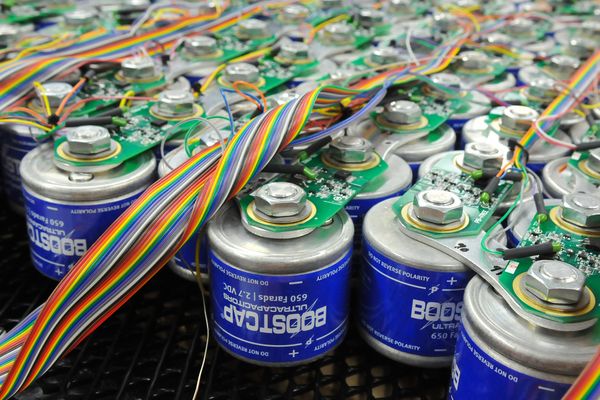Beating graphene to push supercapacitors closer to batteries

(credit: Oak Ridge National Lab)
Most people think of batteries when they consider energy storage, but capacitors are an alternative in some use cases. Capacitors are used in almost all electronic devices, often to supply temporary power when batteries are being changed to prevent loss of information. In addition to everyday devices, they are also used in more obscure technologies, including certain types of weapons.
Understanding the supercapacitor
Unlike batteries, capacitors use static electricity to store energy. In their simplest form, they contain two conducting metallic plates with an insulating material (dielectric) placed in between. A typical capacitor charges instantly but usually cannot hold a great deal of charge.
Supercapacitors can at least partly overcome this shortcoming. They differ from the typical capacitor in that their “plates” provide significantly larger surface area and are much closer together. The surface area is increased by coating the metal plates with a porous substance. Instead of having a dielectric material between them, the plates of a supercapacitor are soaked in an electrolyte and separated by an extremely thin insulator.
Read 11 remaining paragraphs | Comments
Ars Technica
STRATEGIES FOR A COMPANY’S INTELLECTUAL PROPERTY. IP protection is a part of your business strategy and matches your commercial goals. A simple IP strategy is to protect your product and service by getting patent, trademark and copyright certificates.
U.S. COMPANY REGISTRATION. We help our foreign clients with registering U.S. business to support moving their innovations to U.S. market. We assist in navigating the process of setting up a new business and support while it grows.


